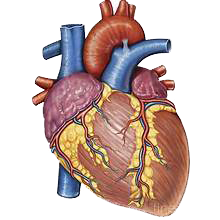Understanding the Importance of Cardiovascular Health

Introduction
Cardiovascular health is a critical aspect of overall well-being, impacting the heart and blood vessels. Understanding the importance of cardiovascular health is essential for maintaining a healthy lifestyle and reducing the risk of heart disease and other related conditions. By adopting healthy habits, individuals can positively influence their cardiovascular health and enhance their quality of life. This section will delve into the various factors that contribute to cardiovascular health, highlighting the significance of regular exercise, a balanced diet, stress management, and avoiding harmful habits such as smoking.
1. Berries: The Ultimate Heart Superfood
Berries are hailed as the ultimate heart superfood due to their exceptional nutritional profile. Rich in antioxidants, such as anthocyanins and flavonoids, berries have been linked to reducing the risk of cardiovascular diseases by lowering blood pressure, reducing inflammation, and improving cholesterol levels. Blueberries, strawberries, raspberries, and blackberries are among the top choices for heart health. Including a variety of berries in your diet can support a healthy heart and overall well-being. Whether fresh, frozen, or dried, berries are a delicious and convenient way to boost your cardiovascular health.
2. Fatty Fish: Omega-3 Powerhouse
- Fatty fish such as salmon, mackerel, and sardines are rich sources of omega-3 fatty acids.
- Omega-3s play a crucial role in reducing inflammation, triglyceride levels, and blood pressure.
- Regular consumption of fatty fish has been linked to a lower risk of heart disease and stroke.
- Including fatty fish in the diet at least twice a week can significantly improve cardiovascular health.
- Omega-3s are known to improve heart rhythm, prevent blood clots, and maintain healthy blood vessel function.
3. Nuts and Seeds: Crunchy Heart Protectors
- Nuts and seeds are packed with heart-healthy nutrients such as omega-3 fatty acids, fiber, and antioxidants.
- Almonds, walnuts, chia seeds, and flaxseeds are excellent choices for cardiovascular health.
- Consuming a handful of nuts or seeds daily can help lower cholesterol levels and reduce the risk of heart disease.
- These crunchy snacks can also aid in managing blood pressure and inflammation in the body.
- Incorporating a variety of nuts and seeds into your diet can provide a delicious way to support a healthy heart.
4. Leafy Greens: Nutrient-Rich Powerhouses
- Leafy greens are packed with essential nutrients such as vitamins A, C, and K, as well as minerals like potassium and magnesium.
- These nutrients help support cardiovascular health by reducing inflammation, lowering blood pressure, and improving blood vessel function.
- Incorporating leafy greens like spinach, kale, and Swiss chard into your diet can contribute to overall heart health.
- The fiber content in leafy greens also aids in maintaining healthy cholesterol levels and promoting weight management, both crucial factors for a healthy heart.
5. Whole Grains: Fiber-Filled Goodness
- Whole grains are an essential component of a heart-healthy diet.
- They are packed with fiber, which can help lower cholesterol levels and reduce the risk of heart disease.
- Examples of whole grains include brown rice, quinoa, oats, and whole wheat bread.
- Consuming whole grains regularly can aid in weight management and improve overall heart health.
6. Avocados: Healthy Fats Galore
- Avocados are packed with monounsaturated fats, which are beneficial for heart health.
- They contain oleic acid, a type of monounsaturated fat that can help reduce inflammation and improve cholesterol levels.
- The potassium in avocados helps regulate blood pressure, contributing to a healthy cardiovascular system.
- The fiber content in avocados promotes satiety and can help manage weight, reducing the risk of heart disease.
- Including avocados in a balanced diet can provide essential nutrients and contribute to overall heart health.
7. Beans and Legumes: Plant-Based Protein
- Legumes like beans, lentils, and chickpeas are excellent sources of plant-based protein.
- They are also rich in fiber, vitamins, and minerals, benefiting cardiovascular health.
- Consuming beans and legumes regularly can help lower cholesterol levels and reduce the risk of heart disease.
- Including a variety of beans and legumes in the diet can contribute to a balanced and heart-healthy eating plan.
- Try incorporating black beans, kidney beans, chickpeas, or lentils into salads, soups, stews, and other dishes for a nutritious protein boost.
8. Olive Oil: Liquid Gold for the Heart
Olive oil is a key player in promoting heart health. Rich in monounsaturated fats and antioxidants, olive oil helps lower the risk of heart disease by reducing inflammation and improving cholesterol levels. Its high content of oleic acid is known to have numerous cardiovascular benefits, including reducing blood pressure and oxidative stress. Incorporating olive oil into daily cooking not only enhances the flavor of dishes but also contributes to overall heart health. Choosing extra virgin olive oil ensures maximum health benefits due to its minimal processing and higher nutrient content.
Ensure to make olive oil a staple in your kitchen for a healthy heart.
9. Dark Chocolate: Indulgence with Benefits
Dark chocolate, with its rich and decadent flavor, offers more than just a satisfying treat. Packed with antioxidants like flavonoids, it helps improve heart health by reducing inflammation and increasing blood flow. The consumption of dark chocolate in moderation has been linked to lower blood pressure and improved cholesterol levels. Additionally, it may enhance cognitive function and mood, contributing to overall well-being. When choosing dark chocolate, opt for varieties with a cocoa content of 70% or higher to fully reap its health benefits.
10. Conclusion
- Maintaining cardiovascular health is crucial for overall well-being.
- Regular exercise and a healthy diet play key roles in preventing heart disease.
- Understanding risk factors such as high blood pressure and cholesterol levels is essential for early detection and management.
- Lifestyle modifications can significantly reduce the risk of cardiovascular issues.
- Prioritizing heart health through awareness and proactive measures is fundamental for a long and healthy life.
This content is accurate and true to the